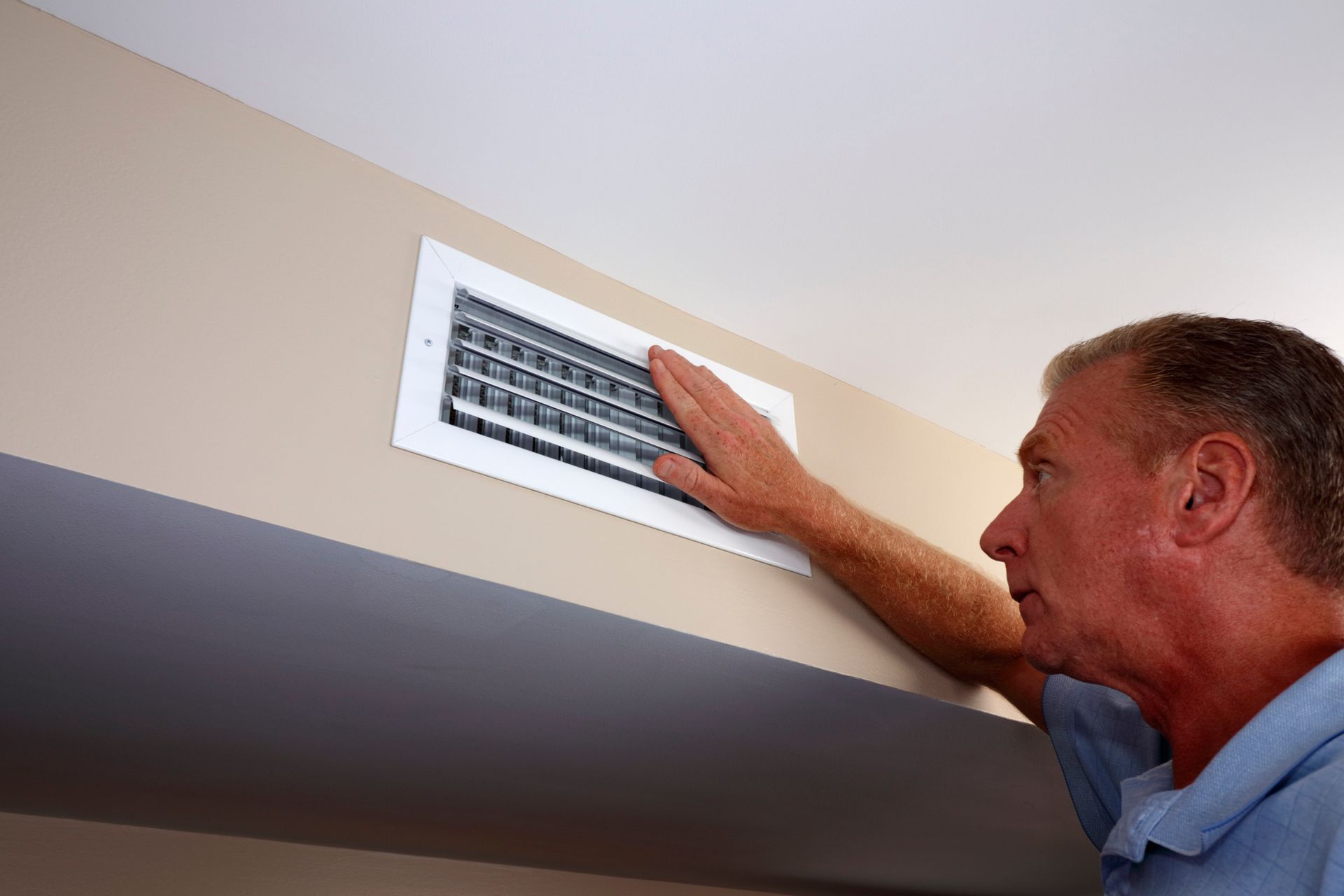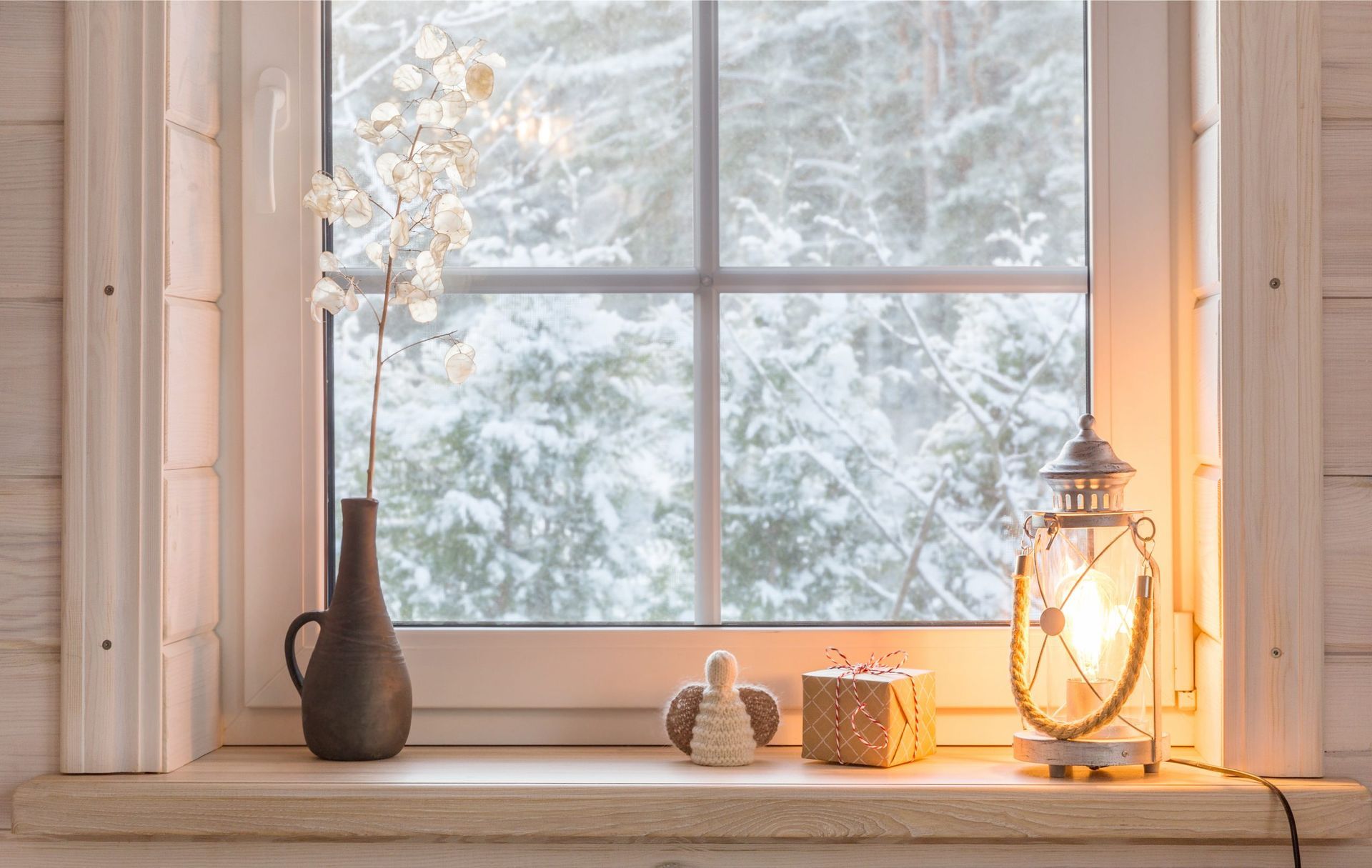Our Blog
Our Blog

February 27, 2023
When it comes to weather, in Minnesota, we live in a state of extremes. That’s why we rely on our homes to provide an oasis of clean air and cozy temperatures all year long. And WestAIR Heating & Cooling has you covered. Read on to learn more about the HVAC services and solutions we offer as your local source for total indoor air comfort. Home Heating Solutions The snowy and bitterly cold winters make reliable, efficient heating systems vital to our comfort, health, and safety. WestAIR offers a full range of solutions, and our expert technicians will help you find the perfect fit for your home and provide professional installation. High-efficiency furnaces warm your entire home in the most cost-effective way, leading to lower energy bills. Additionally, qualifying systems allow you to claim a federal tax credit . Radiant floor heating provide heat from the ground up instead of via forced air through vents, which eliminates air loss in ductwork. This also means dust and allergens aren’t being blown into the home and decreasing air quality. Gas fireplaces allow you to add beauty as well as comfort. Our experienced technicians will help you choose the right model, style, and finishing touches to optimize performance and ultimately boost your home’s value. Unit/garage heaters let you use your garage for more than parking. By keeping the space warm, it can be used for year-round storage, social and recreational activities, hobbies, and more. Home Cooling Solutions While our air is extremely cold and dry, the summers are full of heat and humidity. But don’t worry—we provide the same level of experience and expertise when it comes to home cooling solutions. High-efficiency air conditioning (A/C) systems deliver cost-effective cooling while also helping maintain proper humidity levels. And just like the furnaces mentioned above, many will qualify you for a federal tax credit . Ductless mini-split A/C systems require no ductwork, making them ideal for homes/spaces where adding ducts is impractical or too expensive. They can also provide heating as well as cooling. HVAC Efficiency and Indoor Air Quality Solutions Indoor air quality (IAQ) affects comfort as well as overall health. Rely on WestAIR to help ensure the air inside your home is both clean and cozy. Air exchangers help remove stale, unhealthy indoor air while simultaneously providing fresh, pre-filtered outdoor air. Air cleaners do just what the name implies: They clean the air by trapping harmful airborne particles before they can pollute the home and be breathed in by you and your loved ones. Whole house humidifiers maintain relative humidity levels, helping avoid dry-air issues such as dry skin, cracking/warping of furniture and wood, and inefficient heating. Programmable/setback thermostats allow you to pre-set temperature and humidity settings for multiple days. This allows you to maintain cost-effective comfort without constantly having to adjust the thermostat. Automatic zoning systems separate your home into zones that can be individually controlled. That way, you don’t have to waste energy and money heating/cooling areas that are rarely used. Ultraviolet (UV) light air purification systems work in conjunction with your current HVAC to eliminate viruses, bacteria, mold, and other harmful airborne pathogens for improved IAQ. HVAC Maintenance Services As your local source for all things HVAC, WestAIR also provides a full range of professional maintenance services: Annual/Routine Maintenance Duct Cleaning Inspection and Repair/Replacement Replacement Air Filters Your home should be a private escape from the extremes of Minnesota weather. We’re here to help make the best decision for you and your home, as well as ensure your systems run at peak performance and efficiency. Contact WestAIR today to learn more about our HVAC services and solutions for total indoor air comfort.

May 23, 2022
The weather is heating up here in Minnesota. Have you given your cooling system a test run yet? Doing so allows you to address any issues before the hot and humid summer days arrive. But how will you know if you need a repair or a replacement? Read on to learn about six signs you need a new air conditioner. Frequent Repairs and Old Age According to the U.S. Department of Energy (DOE) , central air conditioners typically last about 15-20 years . And while occasional repairs are to be expected, having to do so frequently means you likely need a replacement. If your AC is around 15 years old and/or needs multiple service calls during the cooling season, it may be time to forget the repair bills and invest in a new cooling system . Strange Odors and/or Sounds Your AC shouldn’t be silent, but be on alert for certain noises that point to a problem: Loud grinding, squealing, or scraping noises could indicate a faulty belt, which can damage other parts if unaddressed. Frequent cycling (system turning on/off) could be caused by an improperly sized unit, a leaky ventilation system, or issues with the evaporator coils. Additionally, the air pushed out by the system should not offend your nostrils. Don’t ignore strange odors when your AC is on: Burning smells may be due to burned-out wiring or other issues with the unit’s internal pieces, which could lead to an electrical fire. Foul, rotten egg smells could indicate a gas leak that poses a serious health and safety hazard for you and your family. Musty smells could mean moisture is escaping into your ductwork and creating health risks. If you notice any of these issues, contact WestAIR ASAP to investigate and resolve the issue to keep your household safe. Moisture Buildup On/Around Condenser Unit Your AC will naturally produce some condensation, but liquids should never leak from the unit. Pooling water may be caused by a blocked or busted condensation tube and is a less serious issue. However, the refrigerant the system uses to cool the air is poisonous. Contact our expert HVAC technicians immediately if you notice any liquids on or around the condenser unit. Excess Indoor Humidity Speaking of moisture, a properly functioning cooling system should help maintain proper indoor humidity levels. If your home feels excessively humid, that’s a sign that your AC is failing and may need to be replaced. Weak, Warm, and/or Uneven Air Distribution Air conditioners should supply your entire home with cool, evenly distributed air. Warm air could be caused by a problem with the compressor or restricted airflow. If you notice uneven or weak air distribution from your vents, you may need to change/clean your filter or clean your ductwork to clear a blockage. You should schedule a professional inspection from an HVAC specialist to diagnose the exact cause and discuss the ideal solution to these problems. Higher Energy Bills Higher energy bills are to be expected as we increase the demand on our HVAC system during the cooling months. But if your bills seem to spike unreasonably, it’s likely that your AC isn’t operating efficiently and needs to be repaired or replaced. Rely on WestAIR Heating & Cooling for AC Repair and Replacement As we prepare for the hot and humid summer days ahead, now’s the time to ensure your AC is ready. Keep an eye out for these signs you need a new air conditioner when testing your system before the cooling season is in full swing. If you notice any issues, the local HVAC experts at WestAIR are here to help. Contact us to learn more and schedule service .

November 19, 2020
November may have given us a few warm, sunny days, but it’s safe to say heating season is upon us in Minnesota. We’ll have our furnaces working hard for the next few months, making it crucial for homeowners to know when their system needs professional repair or replacement. Use these furnace issue warning signs so you know when it’s time to call in the pros this winter. Old Age With proper installation and regular maintenance service , furnaces will last 15 to 20 years on average. Check the age of your furnace, and if it’s over 15 years old, it’s time to start considering an upgrade. Contact WestAIR for a free estimate and to schedule a professional inspection and evaluation with one of our HVAC technicians. Frequent, Costly Repairs Your furnace should be serviced annually for maintenance, but regular repairs that take a toll on your wallet are a sure sign that your furnace needs replacing. If repair service costs 50 percent or more than a replacement, a system upgrade is highly recommended. Not only will you receive peace of mind throughout the heating season, modern furnaces offer much higher efficiency and performance, saving you money on utility and repair bills. Irregular Sounds, Smells, and Cycling HVAC systems operate quietly and can easily go unnoticed if they’re functioning properly. Keep an eye (as well as an ear and nose) out for these irregular warning signs: Banging, rattling, popping, humming, or screeching sounds Persistent or random burning smells More frequent on/off cycling (AKA short cycling) These complications indicate serious mechanical problems that decrease heating efficiency and pose a potential fire hazard. Contact WestAIR, your local HVAC company , ASAP if you notice any of these issues. Uneven or Inefficient Heating Properly sized, installed, and maintained furnaces are designed to heat your entire house evenly. Signs of inefficient heating include: Finding cold spots or different temperatures in rooms around the home Having to adjust the thermostat frequently to maintain comfort Turning the temperature higher than normal to keep the house warm Seeing unexpected spikes in utility bills If you experience any of these issues, the solution could be anything from a simple repair to a thermostat or furnace replacement . Don’t suffer through poor heating and higher c osts – have an HVAC technician inspect your system and diagnose the problem and discuss your options. Decreased Indoor Air Quality Furnaces and HVAC systems are designed to help maintain indoor air quality and humidity as well as temperature. Yours might be failing if you or your family notice the following: Stuffy or stale air Dry nose, throat, or skin Excessive dust accumulation Frequent static shocks Cracked wood on furniture, fixtures, and frames New or worsening allergy symptoms Carbon Monoxide Exposure Furnaces fueled by gas or oil produce carbon monoxide, which is poisonous and potentially life-threatening with prolonged exposure. Heating systems are designed to trap and safely exhaust this dangerous gas, but it is possible for a leak to develop over time and put your family at risk. Signs of a carbon monoxide leak include: Yellow and/or flickering burner flame (should be blue with a consistent burn) Soot around the furnace and registers Excess moisture on exterior windows, walls, and other cold surfaces Rust, cracks, or corrosion on/around flue pipes and other furnace components Warning signs of carbon monoxide exposure can also mimic common illnesses, so beware of unexplained nausea, frequent headaches, confusion/disorientation, burning nose and eyes, and flu-like symptoms. Remember, carbon monoxide poisoning can cause serious health issues and even death. If you or a family member experience any of these signs and symptoms, seek medical attention immediately and then call your utility provider and HVAC technician ASAP. We all know that Minnesota weather offers plenty of surprises, and getting stuck with a broken furnace is a surprise we could all do without. Remember these furnace issue warning signs so you can stay ahead of issues and know when it’s time for professional repair or replacement service. WestAIR is a Rheem Pro Partner and proudly services all residential HVAC brands . Contact us for all your heating and cooling needs.

May 28, 2020
Summer weather is finally upon us, and we know that 2020 won’t be like every other year. Air conditioners play a vital role here in Minnesota and keeping them running properly will be even more important this time around. To help, we gathered a list of common summer HVAC mistakes to avoid as you keep your home feeling cool and cozy. Neglecting Regular Maintenance Regular HVAC maintenance helps prevent inconvenient breakdowns that leave you without cool, comfortable air and with an expensive repair to get it back. Avoid these mistakes to help keep your system running smoothly all season long. Not scheduling preventative maintenance. Don’t wait until you need an HVAC professional to call one. Have a regular preventative maintenance check early on to promote optimal performance throughout the summer. Running a system with dirty ducts. Dirt, dust, pet hair, and other harmful particles settle into your ductwork over time and get blown into the air you and your family breathe. Left long enough, they can also clog the system, forcing it to work harder and hiking up your utility bills as a result. Annual duct cleaning is vital to the health and efficiency of your HVAC system, as well as indoor air quality . Not keeping a clean filter. Just like ductwork, dirty or clogged air filters cause added stress on your HVAC system and decreased air quality. Plan to change your air filter (or clean if re-usable) monthly. Having an Oversized System Bigger isn’t always better when it comes to HVAC. Proper air conditioning will circulate cool air and remove humidity simultaneously and evenly – if the unit is too big, it will cool the home quickly without removing enough moisture from the air. As a result, you won’t feel comfortably cool and may turn the thermostat even lower, working the system harder and increasing energy use. If your A/C isn’t cooling the home how you feel it should, consult your local HVAC experts about possibly upgrading to a right-sized system . Closing Unused Air Vents Some homeowners worry about cooling rooms that aren’t used on a daily basis. However, as mentioned above, properly sized systems are designed to evenly distribute cool air to the entire home. While it may seem logical to close unused vents to focus on cooling high-traffic areas, closing unused air vents decreases system efficiency and increases its workload. Improper Thermostat Management Altering the thermostat setting can be a touchy subject in the home, and doing so can impact the efficiency and health of your system. Remember to avoid these common mistakes. Don’t crank the thermostat. You may be tempted to turn the temp extra-low to cool the home quickly, but this method actually decreases efficiency and adds stress onto the system. Be patient. Set the temperature to a comfortable level and let it run at its optimal rate. Don’t pay to keep an empty house cool. No need to use extra energy to keep the house comfy if no one’s home. Turn the thermostat up when you’re gone for work or out of town, and turn it back down when you return. But don’t turn the system off. Turning the system completely off forces it to work harder to cool the home when it’s fired back up. Unless you’re leaving for an extended trip, keep the A/C running at a higher temperature. Consider Installing a Programmable Thermostat Programmable thermostats let you customize and set temperature and humidity settings for multiple days, eliminating the need to manually monitor them throughout the day. Contact us to learn more about optimizing your summertime cooling performance and schedule with a new smart thermostat. Crowding/Obstructing the Outdoor Unit Outdoor units need to easily draw in air to operate efficiently. Clear any clutter and obstructions within two to three feet of the unit and be sure to keep it clean of grass clippings, dirt, and other debris throughout the summer. Not Properly Sealing the Home It’s a pretty simple concept: Keep cool air from escaping and heat from entering the home. Be mindful of these simple mistakes that impact your home’s cooling comfort and costs . Neglecting leaks and drafts. Inspect windows, doors, and exterior walls and seal or caulk any small cracks or gaps that could let cool air out and warm air in. Leaving windows unlocked and uncovered. Even shut windows can have small leaks, so lock them to ensure a tight seal. During the day, use curtains and shades to block direct rays of sunlight from heating your home. Not Managing Indoor Humidity Humidity plays a crucial role when it comes to home comfort and air quality . While HVAC systems pull moisture from the air, there are many things you can do to help reduce humidity in your home , such as taking cold(er) showers, using exhaust fans, and installing a dehumidifier to work in conjunction with your air conditioner . Minnesota summers provide amazing opportunities to get outside and enjoy nature’s beauty, but we all know the importance of having a cool, comfortable home to relax in. Keep these common summer HVAC mistakes in mind to help avoid any issues with your system this cooling season. As your residential HVAC experts , WestAIR is proud to reliably serve all your heating and cooling needs. Contact us today to schedule service and learn more.

April 9, 2019
Some of the most pressing concerns for Minnesota homeowners are humidity levels, poor air quality, and increased utility bills. In the spring, those HVAC issues are a hot topic as the warm weather approaches. Follow our spring HVAC checklist to inspect and prepare your equipment for summer. Turn off power to your outdoor unit from the electrical disconnect and clear away plants, weeds, fallen leaves, and branches. Use a garden hose to gently rinse off the condenser coils. If the unit doesn’t get enough air or the coils are covered in dirt, it could overheat. Change your filter , and plan to do so monthly when your furnace and air conditioning are in use. Filters keep dust and dirt from entering your system, extend equipment life, reduce energy costs, and improve indoor air quality. Clean return air vents and floor registers in your home with a vacuum. If dust gets in the system, it could compromise energy efficiency and air quality. For a deeper clean, remove the vent, wrap a butter knife in a rag to scrub the individual grill spaces, and rinse with warm water and soap. Check the batteries in your carbon monoxide detector(s) and replace if needed so you know it is working properly to keep your family safe. Caulk windows and doors to minimize air leakage so the cool air your system produces isn’t wasted. According to the U.S. Department of Energy , the best time to apply caulk is in low humidity when the temperature is about 45 degrees, making spring the ideal time for this simple maintenance. Dust and mop so dirt, allergens, and other airborne particles don’t end up in your ductwork. Schedule duct cleaning if you haven’t done so in a while or you suspect your ductwork is dirty. Clean windows, blinds, and curtains so you can let the sunlight into your home and enjoy a clear view of the outdoors without producing a cloud of dust each time you open them. Dust ceiling fan blades and reverse their direction to rotate counterclockwise so they’ll blow air straight down and produce a wind-chill effect. Most fan models have a small switch on the motor housing. Power up your air conditioning to see if everything is working properly. You should visually inspect the unit for any leaking chemical fluids and check your home for burning, gas, or musty odors. Schedule service with your HVAC contractor for a thorough inspection. They’ll clean, lubricate, and troubleshoot your equipment so it will run smoothly and efficiently. Midwest summers can be particularly hot and sticky, and homeowners can spend up to 250 dollars a month running their air conditioner. WestAIR Heating & Cooling is here to help you save money in every season with a variety of specials on our services. We also provide indoor air quality solutions so you can minimize spring allergies and live comfortably. If you are having trouble with your HVAC system, contact us for repair and replacement services .
Categories
Search Blog Posts

– Steven in Albertville



